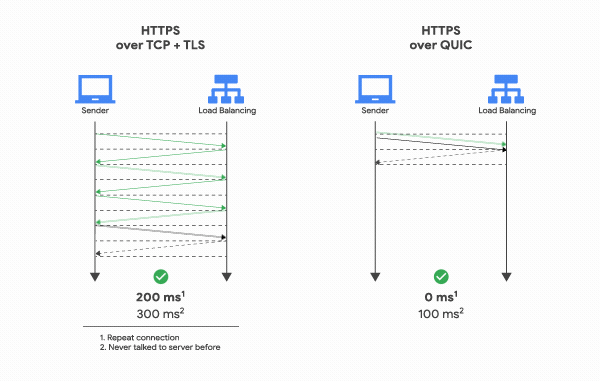Whether you’re really passionate about RPC, MQTT, Matrix or wayland, tell us more about the protocols or open standards you have strong opinions on!
Markdown. Its only in tech-spaces that its preferred, but it should be used everywhere. You can even write full books and academic papers in markdown (maybe with only a few extensions like latex / mathjax).
Instead, in a lot of fields, people are passing around variants of microsoft word documents with weird formatting and no standardization around headings, quotes, and comments.
Man, I’ve written three novels plus assorted shorter form stories in markdown.
There’s a learning curve, but once you get going, it’s so fluid. The problem is that when it comes time to format for release, you have to convert to something else, and not every word processor can handle markdown. It’s extra work, but worth it, imo.
For sure, I bet full fledged editors like word don’t even let you import it.
Not correctly, no. Librewriter does a bit better, but still misses some bits
Silly question why can’t you convert markdown to PDF and pass that to publishers?
Because it isn’t doc is docx.
Publishers are pissy about such things. Even self publishing (which is what I do now), the various outlets still have limits to what they will use. Amazon accepts something like three file formats, including their own, and pdf isn’t on the list.
I could just do pdf for directly giving them away to people, but even then, epub is usually a better pick in terms of readability since that’s the standard for actual books since ereaders tend to display it better than pdfs. Most people reading books via files would be using something that can give a better experience with epub vs pdf.
Depends on the type of book. Since you need HTML for all non default styles. Therefore, it raises the bar… you need a bit of web dev knowledge which removes the biggest benefit of markdown: simplicity / ease of use.
Markdown is awesome, I agree! I did not realize you could extend markdown with anything other than html. The html extension is quite nice to do anything that markdown doesn’t support natively, but I wish there was an easier way to extend markdown. Maybe the ones you listed are what I need.
Hedgedoc / hackmd support a good amount of extensions out of the box. I think typora and obsidias do also (but not open source).
It is too basic. I guess something more full-fledged like… typst?
ReST (restructured text) is a good middle ground. I just wish it had more support outside of the python community. It could use some new/better tooling than Sphinx
I agree 💯
IPv6
I mean, why the hell is IPv4 still a thing??
Because ipv6 is yucky
Yeah I’m anti IPv6 so I’m not going to ever use it personally. Ipv4 is enough for me
It may be enough for you, but not for everybody.
go ahead and use that on your home network, but if you work in IT and deploy it on public networks i’m going to kick you in the nuts
Unified Push.
Unbelievable that we have to rely on Google and co for sth as essential as push messages! Even among the open source community, the adoption is surprisingly limited.
Fuck Unified Push. Just use the Web Push standard. https://www.rfc-editor.org/rfc/rfc8030
It is what is used for browser push messages, is already widely supported. Is compatible with existing push infrastructure and users and is end-to-end encrypted. IDK why Unified Push felt the need to create a new protocol when a perfectly good one already existed.
Although there is no “client side” spec. The Unified Push client side could be useful. But they should throw away their custom backend protocol and just use Web Push.
- IPv6, needed for modern Internet not to collapse, would make many other important things easier. Easier to become an ISP, to selfhost, to build P2P networks, etc.
- GNU Taler, a payment protocol just look at it go: https://101010.pl/@didek/111934952208145427, or just imagine building a payment terminal of a Raspberry Pi
- Matrix, to unify chat, conference and calling apps
- some self-arranging darknet protocol becoming a norm like I2P, GNUNet or Yggdrasil, so we could have a backup when mass Internet blockage happen
I really hope matrix gets native VoIP. I saw like 2 years ago it was in beta, haven’t kept up with it though. I’d also really like voice channels like discord so my friends and I can replace discord but it seems like matrix isn’t interested in being a discord replacement
Do Not Track
Such a simple solution for the cookie banner issue. But it prevented websites from tricking users into allowing them to gather their data, so it had to go.
Nobody was going to honor that. That’s just giving them an extra bit of data to track you with.
RSS (RDF Site Summary or Really Simple Syndication) It is in use a fair amount, but it is usually buried. Many people don’t know it exists and because of that I am afraid it will one day go away.
I find it a great simple way to stay up to date across multiple web sites the way I want to (on my terms, not theirs) By the way, it works on Lemmy to :)
Honestly there is rarely a blog I want to follow that doesn’t have it. I do think it would be great to have more readers using it so that it becomes more significant, but for my reading it is actually pretty great.
odf/odt/ods
.md
SimpleX
Matrix
OpenPGP
Last, certainly not least… ActivityPub
IOT devices shouldn’t connect to wifi. ZWave or zigbee is much better suited to IOT stuff, but it seems to mostly get adopted in very limited, locked down proprietary shit like Hue Lights.
There’s only one case I’ve found where Wi-Fi use seems acceptable in IoT: ESPHome. It’s open-source firmware for microcontrollers that makes DIY IoT sensors and controls accessible over LAN without phoning home to whatever remote server, without trying to make anything accessible over the Internet, and without breaking in any way if the device has no route to the Internet.
I still wouldn’t call Wi-Fi use ideal even there; mesh can help in larger homes and Z-Wave/Zigbee radios tend to be more power efficient, though ESP32 isn’t exactly suited for a battery-powered device that’s expected to run 24/7 regardless.
XMPP
Why not matrix?
You’re going off-topic from the OP question :-) But to answer your new question : I do not trust Matrix enough when it comes to privacy. I know that this link is old but still. https://disroot.org/en/blog/matrix-closure
Then again I do not trust Signal that much either but sometimes compromises need to be made to get things done. With XMPP the end user can host their own server if they wish to, without meta data going to a centralized point. And video calls via XMPP and Conversations were a pleasure to use when I used it during the Covid-19 pandemic.
I wish Microsoft Office would use the .odf standard by default. Or, failing that, it’d implement its own published .docx specification correctly, so other office suites can be compatible.
At this point Microsoft could use the .odf standard and people won’t notice that and they will be using MSOffice anyways.
Only a fraction of us would use LO or OO or anything compatible.
You do understand that all that is by design from Microsoft to ensure it’s incompatible so that they can f over the competition, right?
- Communication: Matrix
- Browsing: I2P
- Communities: ActivityPub / Mastodon
- Software Forge: Fogejo + ForgeFed
- OS: Linux
- Money: Monero
Since they meet at least one of,
if not all of the following:- Decentralized / Federated
- Sensorship resistant
- Privacy respecting
- Open source
Matrix… it’s on such a good path I can’t complain. Adoption could be faster but it’s alright.
I2p, although I have no idea if the lack of adoption has not a very good reason.
I second Matrix, though I’ve been waiting for e2ee direct p2p (the Dendrite project) do be worked on for a while. Having something like that, that’s truly decentralized while secure and hiding metadata where possible, would be a dream.
Apparently dendrite is just on maintenance due to insufficient funds. It was what i set up on a test instance because it is lighter, etc. Go figure.
I love i2p. I wish it had more adoption / was easier to use.
I was actually surprised to find out QUIC is fairly close to being default.
Wikipedia
HTTP/3 uses QUIC, a multiplexed transport protocol built on UDP.
HTTP/3 is (at least partially) supported by 97% of tracked web browser installations (thereof of 98% of “tracked mobile” web browsers), and 29% of the top 10 million websites.
XMPP.
Came here to say this. Chart could have been as general as email.
Now that we have Matrix? I would have agreed with you in 2010.
Matrix tries to kill XMPP but the reality is that if you want to self-host, XMPP is much less of a hassle. Also, Matrix is an open standard as in “pay big money to participate in the openness”. https://matrix.org/blog/2022/12/01/funding-matrix-via-the-matrix-org-foundation/
Membership comes at various levels, each with different rewards:
Individual memberships (i.e. today’s Patreon supporters): Ability to vote in the appointment of up to 2 ‘community representatives’ to the Foundation's governing board. Name on the Matrix.org website Silver member: between £2,000 and £80,000 per year, depending on organisation size Ability to vote on the appointment of up to 2 ‘Silver representative’ to the Foundation's governing board Supporter logo on the front page of the new Matrix.org website Gold member: £200,000 / year, adds: Ability to vote on the appointment of up to 3 ‘Gold representatives’ to the Foundation's governing board. Press release announcing the sponsorship 1 original post on the Matrix.org blog per year Participation in the internal Spec Core Team room Larger logo on the front page of Matrix.org Platinum member: £500,000 / year, adds: Ability to vote on the appointment of up to 5 ‘platinum representatives’ to the Foundation's governing board. 1 sponsored Matrix Live episode per year Largest logo on the front page of Matrix.organd nearly every client has something that’s half baked, and it’s funded by a shady UK nonprofit with links to israeli intelligence, and…
Matrix is daaaaamn slow. And not private.
Others have said already, but XMPP and RSS. Also, nobody mentioned NNTP yet.
I wish everything was accessible by NNTP and we had better NNTP clients. NNTP is like RSS but for forums (so, Lemmy, Reddit, or anything where you could reply to posts). Download for offline reading, read in your client, define your own formatting, sorting, filtering, your client, your rules.
If Lemmy was accessible via NNTP, I could just download all posts and comments I’m interested in and reply to them without any connection, and my replies would get synced with the server later when I connect to WiFi or something.
Probably it would be better to edit my comment, but I’ll go with a reply to myself.
To all fans of RSS: there’s this service called FeedBase that is essentially a RSS to NNTP gate. You add your RSS feed to that and it becomes a newsgroup on their server, and you can subscribe to it using any NNTP client. New articles appear as new posts in that newsgroup and you can post your own replies to them. So, you get RSS but with discussions or comments.
If you try this, let me know what RSS feeds you’re reading, so we could read the articles together and have some discussion there!
P.S. This comment is not an ad. I genuinely love feedbase and use that myself.
Holy cow, that’s neat as hell! Thanks for sharing!
Back in the day I was a big Usenet fan. What’s the modern solution to the spam issue? At the time, folk wisdom was that the demise was being caused by spam, and that due to the nature of the protocol it was somehwhat unsolveable.
I also wonder to what extent activity pub is the barrier to offline use? For reddit, the Slide client had offline reading and iirc posting. I have been disappointed it isn’t available for Lemmy. My guess has been it simply isn’t a priority for the devs. Maybe eventually we will get it.
I think it would be cool if RSS got put into Lemmy clients. Example you could make a unified inbox for all accounts by automatically getting the private RSS for incoming messages for all logged in accounts. I have manually set this up a couple of times but its tedious. Completely lacks smoothness when it comes to clicking a link, replying etc. But a client could add a little finesse to fix that.
True, Lemmy (and activitypub in general) could integrate RSS and also be accessible via NNTP.
Or at least add some functionality for offline reading/posting. It’s just not a priority for devs now.
About spam, most of spam was coming from Google groups and since Google unpeered from Usenet, there is no spam.
Content addressable protocols are better for asynchronous use. I’d like to see a proper bluesky atprotocol fork with “post lexicons” properly adapted for forums, they’re built on top of content addressing and public key based account IDs along with 3rd party moderation tooling support integrated and custom 3rd party feeds/views.



















